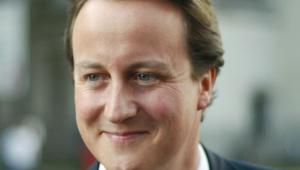By Richard Johnstone | 2 September 2013
Councils have been warned by CIPFA that the use of reserves to deal with shortfalls in day-to-day spending would be a ‘recipe for significant financial problems’.
Figures published by the Department for Communities and Local Government last week showed that councils had increased reserves by £2.6bn to £19.1bn in the 2012/13 financial year.
Following publication of the figures on Friday, Local Government Secretary Eric Pickles accused councils of ‘hypocrisy’ over complaints about government funding cuts. Pickles said councils should not be ‘pleading poverty’ when they were able to increase the money they had saved, and called on town halls to consider whether such substantial reserves were necessary.
But, responding to the figures, CIPFA chief executive Steve Freer said town halls were taking steps to deal with the additional uncertainty of reforms to local government finance.
‘Recent changes to local authority funding, including the localisation of business rates and council tax benefit, have created additional uncertainty for councils' future budgets,’ Freer said.
‘When considered in the context of the government's on-going austerity programmes and ever tighter financial settlements, it is encouraging that the majority of councils are exercising prudence in their reserves management, providing crucial capacity to invest in service transformation and a hedge against future unexpected shortfalls.’
Councils should be ‘particularly careful’ about using reserves to deal with shortfalls in recurring funding, he added. ‘That is a recipe for significant financial problems in the medium term. Reserves are not a long-term solution to funding challenges and at best can only buy time to enable service changes to be planned and implemented in an orderly way.’
Pickles said residents would be surprised that councils were ‘hoarding billions in their piggy banks’ at the same time as ‘pleading poverty and raising council tax.
He added: ‘While it is sensible for local authorities to maintain a healthy cushion, such substantial reserves are completely unnecessary and should be tapped into to ensure councils can protect frontline services and keep council tax down for hardworking people.’
The Local Government Association said that reserves were ‘all that stand between councils and financial collapse’.
Responding to the figures, LGA chair Sir Merrick Cockell said the increase in reserves was prudent and justified given the ‘uncertainty facing funding for local services’.
If the Greater London Authority were excluded, councils across the country set aside 1.8% of their annual revenue in 2012/13 to cope with emerging risks, he said.
‘The government's welfare and pensions reforms are passing hundreds of millions of pounds of additional costs onto local government. These reserves are being set aside to help councils partially manage those new costs and dampen their impact on funding for the services residents use every day.
‘Local authorities are legally required to balance the books each year and it should come as no surprise that reserves are going up when the government is promoting caution by continually shifting the financial goalposts.’
He added that councils would be less cautious ‘if the government had not made a number of large and unexpected cuts to local government funding over and above those signalled in the Comprehensive Spending Review, or if it had not taken the unsignalled decision to withhold £1bn from the 2015/16 local government funding settlement’.






















